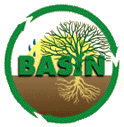

 |
 |
One thing that I've become aware of in my work with drought and drought
reconstructions is that Colorado, and especially the upper S. Platte and
Arkansas River basin region, has experienced a period of sustained wet
conditions for the last 2 decades. During the last 20 years, there has
been a tremendous amount of growth that depends on a reliable source of
water. I know the City of Boulder and some other municipalities are
well aware of the long-term climate history and are careful water
planners, but I worry about some of these areas that seem eager to grow
at all costs and if they realize we may be in an unusually wet period
that will not last forever.
The other thing that changes, and at a longer time scale, is the forest
density. More frequent fires in presettlement times likely kept forests
more open-grown -at least the ponderosa pine forests. These open-grown
forests were safer places to live because they typically don't support
crown fires. Many Front Range forests are pretty dense now, and present
a more dangerous enviroment for human habits, in terms of fire. I do
think prescribed burning and thinning need to be examined carefully as
ways to reduce risk. I was in the Bitterroot Valley this summer at the
end of August, and a thought that came to mind, is that there is no good
reason the Front Range couldn't have a fire season like this, some dry
year.
Perhaps a greater awareness of some of the risks involved in choices
about how to develop and where to live would help mitigate impacts (or
at least disasters would be less unexpected)? I'm not sure, though, if
a greater awareness would really change anything if there is an
expectation of aid when the disaster hits.
Connie
-- Connie Woodhouse NOAA Paleoclimatology Program National Geophysical Data Center 325 Broadway E/GC Boulder, CO 80303 ph: (303)497-6297 fax: (303)497-6513 email: woodhous@ngdc.noaa.gov See http://basin.org/forum/fire-flood.html for more information on this list.